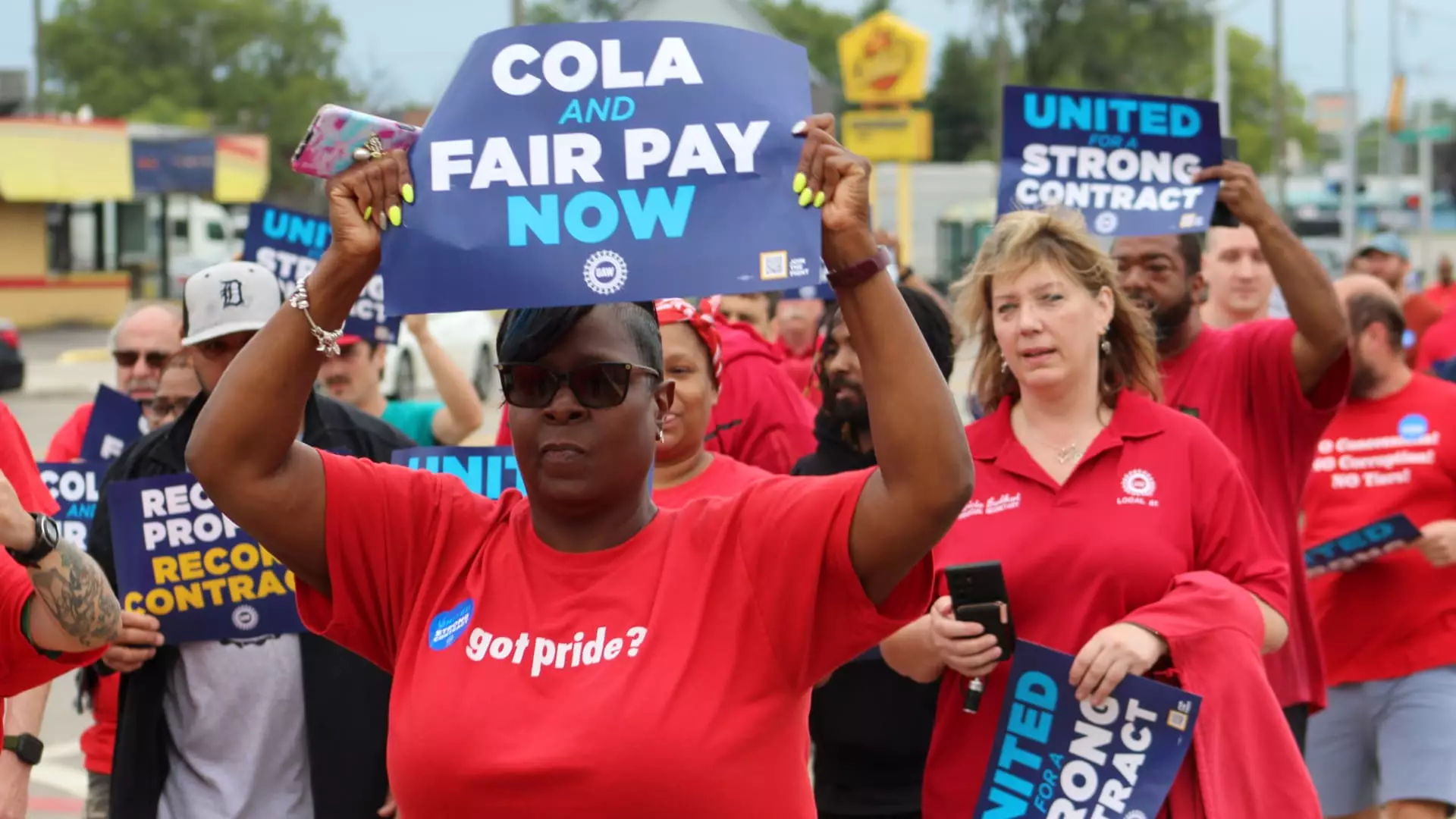United Auto Workers President Shawn Fain has vowed to take a tough stance in contract negotiations with Detroit automakers General Motors, Ford Motor, and Stellantis. With the contract set to expire soon, the possibility of a strike becomes increasingly likely. This article examines the current situation and analyzes the potential implications of a strike on the industry.
Unlike previous union leaders, Fain is pursuing negotiations with all three automakers simultaneously, refusing to prioritize one over the others. This unconventional approach, combined with his confrontational style, marks a departure from the norm. Fain’s strategy is aimed at demonstrating the union’s commitment to achieving its members’ demands.
Art Wheaton, a labor professor at Cornell University, believes that a strike is almost inevitable, especially against Stellantis. He suggests that a strike at Stellantis could serve as a warning to GM and Ford to present improved offers. Strikes could take various forms, including a national strike involving all workers or targeted work stoppages at specific plants.
Prolonged strikes against all three automakers would have far-reaching effects on the automotive supply chain, the U.S. economy, and domestic production. Wall Street has already taken note of the potential work stoppage and investors have expressed concerns. A survey conducted by Morgan Stanley revealed that 58% of investors believe a strike is “extremely likely.”
Political Involvement
The Biden administration has also shown interest in the negotiations, appointing Democratic adviser Gene Sperling to monitor the situation for the White House. This level of political involvement highlights the significance of the contract talks and the potential impact on various stakeholders.
The UAW has put forth ambitious demands, including substantial pay increases, retention of platinum healthcare benefits, and a reduced 32-hour workweek. Typically, these demands are not made public until the end of negotiations. However, Fain’s approach has been far more transparent, revealing the union’s priorities early on.
While Fain has expressed his readiness to call for strikes, the decision ultimately rests with the UAW’s 14-member International Executive Board (IEB). The board, led by Fain as president, must approve a work stoppage by a two-thirds majority vote. This emphasizes the collective decision-making process within the union.
Morgan Stanley’s survey found that the majority of respondents expect a potential strike to last longer than a week, with some even anticipating a strike lasting longer than a month. The 40-day strike against GM in 2019 serves as a precedent and demonstrates the potential financial impact on automakers.
The UAW has a strike fund of over $825 million, which covers strike pay for members. The current rate is $500 per week for each member. However, this fund does not account for additional healthcare costs that the union would need to cover. While the strike fund may provide some financial cushion, its sustainability depends on the duration of the strike.
Ratification Challenges
In recent negotiations, UAW members have not always approved tentative agreements reached by their leaders. This was seen in 2015 when Fiat Chrysler (now Stellantis) and GM workers voted against tentative deals. The ratification process can take up to two weeks as members vote on whether to accept the agreements.
Negotiations between the union and automakers involve multiple agreements covering various aspects such as pensions, healthcare benefits, and profit sharing. In 2019, negotiations and ratification voting for all three automakers took an additional eight weeks following the initial tentative agreement reached after the GM strike.
The possibility of a strike looms over Detroit automakers as contract negotiations approach their expiration. President Shawn Fain’s strong stance and refusal to prioritize a single automaker have raised the stakes for all parties involved. The potential consequences of a strike extend beyond the industry, with implications for the economy and the supply chain. As the deadline approaches, the outcome of these negotiations will have significant ramifications for both the United Auto Workers and the Detroit automakers.


Leave a Reply